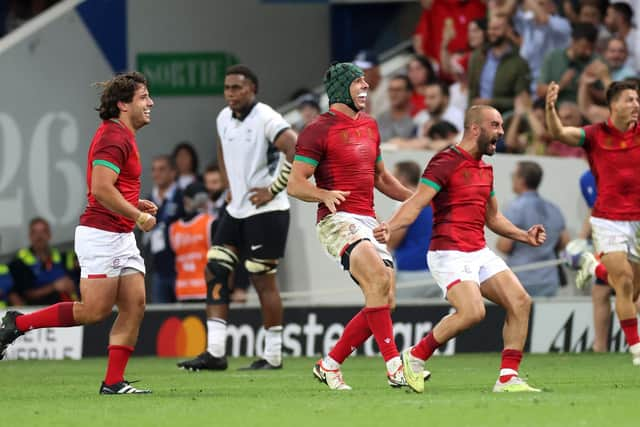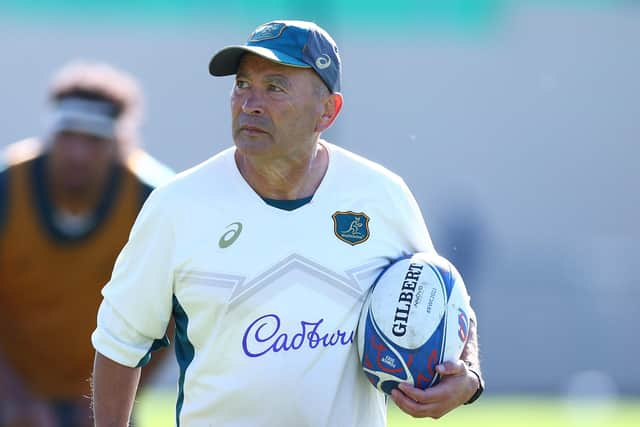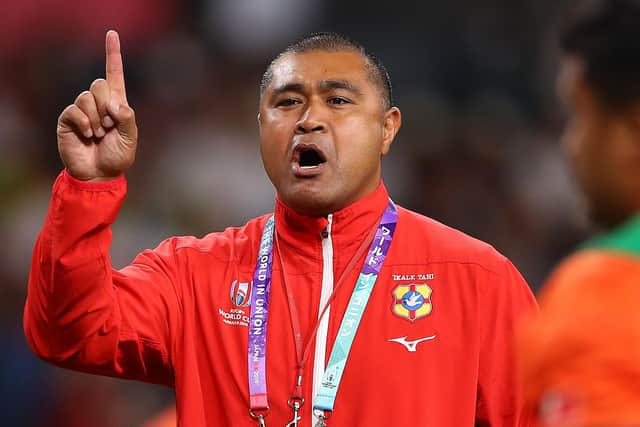Rugby World Cup: Expand to 24 teams - how to fix the scheduling of a momentum-free tournament
Not only is this a tournament sadly lacking in momentum to attract the casual fan, it is also one that has suffered for the pools and schedule being set three years ago, since when the tectonic plates of international rugby have shifted on numerous occasions.
It means the four best teams in the world rankings have come through the same half of the draw, resulting in mouthwatering quarter-final clashes between top-ranked Ireland and No 4 New Zealand on Saturday night, and hosts and No 2-ranked France up against defending champions and the third best team on the planet right now, South Africa, on Sunday night. Both of those games will be thunderous and played to a full house at the Stade de France.
Advertisement
Hide AdAdvertisement
Hide AdIn the red corner – or Marseille where the other two last-eight ties are – No 7 Wales take on No 8 Argentina, and No 6 England face the lowest seeds left, Fiji, who did brilliantly in ousting Australia but still managed to lose to Portugal.


While the gap between tier-one and tier-two nations is closing in some cases, as evidenced by that wonderful Portugal victory last Sunday night, the bottom half of the World Cup draw does not reflect well on the scheduling, nor does the fact that hundreds of tickets were still available for both of the less-attractive games in Marseille in the days leading up to the game.
No matter how ferocious the Ireland-New Zealand and France-South Africa games prove to be, or the final, this tournament that by its conclusion on Saturday October 28 will have run for 50 days, needs to be a wake-up call to World Rugby.
Just as the Rugby Football Union need to urgently address the financial structure of a domestic game that has seen four professional teams go bust inside 12 months, so the international governing body needs to look in their own back yard at the problems that threaten the wider interest in its most lucrative product.
Advertisement
Hide AdAdvertisement
Hide AdFirstly, the lack of momentum or the feel that there has been any real flow to the tournament. Scotland played their first game on the opening weekend and by the time of their second 14 days later, knew they were pretty much out barring a win over world-leading Ireland. England had a two-week hiatus between destroying Chile and limping past Samoa.


Australia knew they were pretty much out even after beating Portugal on October 1, but had to stick around in France for a week while waiting for the slim chance that the European minnows might somehow beat Fiji to offer them a quarter-final lifeline. Os Lobos, as they are know, did win, but a losing bonus point was enough for Fiji to eliminate Eddie Jones’ side.
The pool stages in Japan four years ago were played over three weeks, not four, as they were in England four years earlier. It meant more midweek games for the lesser-ranked teams but also less time between games for all teams and more chance for the tournament to flow.
Player welfare will have been a key driver of stretching the pool stages out a week but it has been to the detriment of the tournament, a solution for which we’ll come to.
Advertisement
Hide AdAdvertisement
Hide AdThe performances of the likes of Portugal and Samoa in France this last month, plus Uruguay and Chile, and the noise their fans bring, suggests rugby union is alive and well in those countries but needs more opportunities to flourish.


Toutai Kefu, who led Tonga to one win, said: “We need more games, simple as that. I don’t know how they do it, international calendars are tough to align, but that is what tier-two teams need. We play six games a year – one or two a year against tier-one nations. Tier-one teams play maybe 15. It is hard to compete against well-oiled machines.”
The word from World Rugby is they know they need to address the issue and that there is a ‘commitment within the game to get it right’.
If it means changing formats, then so be it. The Six Nations is a cash cow for the six unions involved and a closed shop for those excluded. How about promotion for a Portugal, Georgia or Romania that wins the European Championship and relegation for those that finish bottom of the Six Nations. After nearly 25 years how many more chances do Italy deserve to make a mark?
Advertisement
Hide AdAdvertisement
Hide AdLosing an England or a Scotland after one down year would be unfathomable – but tough, that’s sport.
From a World Cup perspective, for the next tournament in 2027 in Australia, how about expanding it from 20 teams to 24 teams? More markets entered into, more money for all. Plus more of a flow.
Divide the teams into six pools of four; three games for each team with three played every day on Thursday, Friday, Saturday and Sunday for three weeks. Top two in each pool advance alongside the four best-placed third-place finishes.
Then a second round, quarter-final, semi-final and final on successive weekends. Still the seven weeks that this tournament has been but no idle weeks for any team.
With the Rugby World Cup reaching what is hoped is an exciting conclusion, it feels an apposite time to consider what comes next for the good of the global game.